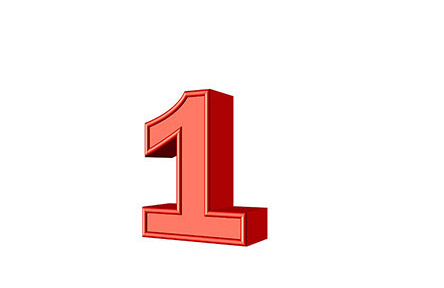Defining One - It's easy!! Really?

Can you define “three”? Oh yes, it comes after “two” and is in the number system. What about 5? That is more complicated – it comes after counting 4 objects. To specify it we also have to explain the numbers 1 to 3. What about 10? That is after 9 and we have to specify the numbers before it in some way. The definitions get more and more complicated. Yes, we can say that 10 is two 5’s put together. That seems much less complicated than spelling out all the numbers. But the short-cuts get limited too.
What about a very, very large number? Well, there are short cuts for the description, but we can see that the short cuts themselves get more and more complicated, the larger the number. For example 64 is 8 by 8? That is quite short, but we have had to define 8 beforehand. We can guess that there are some numbers for which the short-cuts are not very short at all.
It looks like the small numbers are the least complicated. Ah. So it ought to be least complicated to define “one”, right? So how do you do it? What is the definition of “one”? A simple definition is amazingly hard to give. We can say “one is the first number in the number system”. That sentence is much more complicated than “one”! We would need to define the number system first!
Maybe it is simplest to take an object, say an orange, and talk about it. “This is one”. “One what?” Immediately this assumes many types of objects, and the one in our hand is one of a class.
Who would have thought the simple word “one” would lead to so many complications?!
And what about the One Who is before everything else? He absolutely defies description but is singularly NUMBER 1 - and it’s that simple.